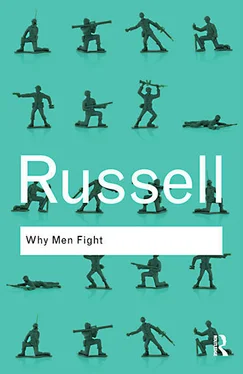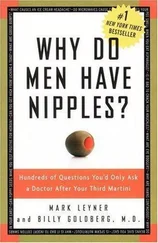1. The growth and vitality of individuals and communities is to be promoted as far as possible.
2. The growth of one individual or one community is to be as little as possible at the expense of another.
The second of these principles, as applied by an individual in his dealings with others, is the principle of reverence , that the life of another has the same importance which we feel in our own life. As applied impersonally in politics, it is the principle of liberty , or rather it includes the principle of liberty as a part. Liberty in itself is a negative principle; it tells us not to interfere, but does not give any basis for construction. It shows that many political and social institutions are bad and ought to be swept away, but it does not show what ought to be put in their place. For this reason a further principle is required, if our political theory is not to be purely destructive.
The combination of our two principles is not in practice an easy matter. Much of the vital energy of the world runs into channels which are oppressive. The Germans have shown themselves extraordinarily full of vital energy, but unfortunately in a form which seems incompatible with the vitality of their neighbours. Europe in general has more vital energy than Africa, but it has used its energy to drain Africa, through industrialism, of even such life as the negroes possessed. The vitality of southeastern Europe is being drained to supply cheap labour for the enterprise of American millionaires. The vitality of men has been in the past a hindrance to the development of women, and it is possible that in the near future women may become a similar hindrance to men. For each reasons the principle of reverence, though not in itself sufficient, is of very great importance, and is able to indicate many of the political changes that the world requires.
In order that both principles may be capable of being satisfied, what is needed is a unifying or integration, first of our individual lives, then of the life of the community and of the world, without sacrifice of individuality. The life of an individual, the life of a community, and even the life of mankind, ought to be, not a number of separate fragments, but in some sense a whole. When this is the case, the growth of the individual is fostered, and is not incompatible with the growth of other individuals. In this way the two principles are brought into harmony.
What integrates an individual life is a consistent creative purpose or unconscious direction. Instinct alone will not suffice to give unity to the life of a civilized man or woman: there must be some dominant object, an ambition, a desire for scientific or artistic creation, a religious principle, or strong and lasting affections. Unity of life is very difficult for a man or woman who has suffered a certain kind of defeat, the kind by which what should have been the dominant impulse is checked and made abortive. Most professions inflict this kind of defeat upon a man at the very outset. If a man becomes a journalist, he probably has to write for a newspaper whose politics he dislikes; this kills his pride in work and his sense of independence. Most medical men find it very hard to succeed without humbug, by which whatever scientific conscience they may have had is destroyed. Politicians are obliged, not only to swallow the party programme, but to pretend to be saints, in order to conciliate religious supporters; hardly any man can enter Parliament without hypocrisy. In no profession is there any respect for the native pride without which a man cannot remain whole; the world ruthlessly crushes it out, because it implies independence, and men desire to enslave others more than they desire to be free themselves. Inward freedom is infinitely precious, and a society which will preserve it is immeasurably to be desired.
The principle of growth in a man is not crushed necessarily by preventing him from doing some definite thing, but it is often crushed by persuading him to do something else. The things that crush growth are those that produce a sense of impotence in the directions in which the vital impulse wishes to be effective. The worst things are those to which the will assents. Often, chiefly from failure of self-knowledge, a man’s will is on a lower level than his impulse: his impulse is towards some kind of creation, while his will is towards a conventional career, with a sufficient income and the respect of his contemporaries. The stereotyped illustration is the artist who produces shoddy work to please the public. But something of the artist’s definiteness of impulse exists in very many men who are not artists. Because the impulse is deep and dumb, because what is called common sense is often against it, because a young man can only follow it if he is willing to set up his own obscure feelings against the wisdom and prudent maxims of elders and friends, it happens in ninety-nine cases out of a hundred that the creative impulse, out of which a free and vigorous life might have sprung, is checked and thwarted at the very outset: the young man consents to become a tool, not an independent workman, a mere means to the fulfilment of others, not the artificer of what his own nature feels to be good. In the moment when he makes this act of consent something dies within him. He can never again become a whole man, never again have the undamaged self-respect, the upright pride, which might have kept him happy in his soul in spite of all outward troubles and difficulties—except, indeed, through conversion and a fundamental change in his way of life.
Outward prohibitions, to which the will gives no assent, are far less harmful than the subtler inducements which seduce the will. A serious disappointment in love may cause the most poignant pain, but to a vigorous man it will not do the same inward damage as is done by marrying for money. The achievement of this or that special desire is not what is essential: what is essential is the direction, the kind of effectiveness which is sought. When the fundamental impulse is opposed by will, it is made to feel helpless: it has no longer enough hope to be powerful as a motive. Outward compulsion does not do the same damage unless it produces the same sense of impotence; and it will not produce the same sense of impotence if the impulse is strong and courageous. Some thwarting of special desires is unavoidable even in the best imaginable community, since some men’s desires, unchecked, lead to the oppression or destruction of others. In a good community Napoleon could not have been allowed the profession of his choice, but he might have found happiness as a pioneer in Western America. He could not have found happiness as a City clerk, and no tolerable organization of society would compel him to become a City clerk.
The integration of an individual life requires that it should embody whatever creative impulse a man may possess, and that his education should have been such as to elicit and fortify this impulse. The integration of a community requires that the different creative impulses of different men and women should work together towards some common life, some common purpose, not necessarily conscious, in which all the members of the community find a help to their individual fulfilment. Most of the activities that spring from vital impulses consist of two parts: one creative, which furthers one’s own life and that of others with the same kind of impulse or circumstances, and one possessive, which hinders the life of some group with a different kind of impulse or circumstances. For this reason, much of what is in itself most vital may nevertheless work against life, as, for example, seventeenth-century Puritanism did in England, or as nationalism does throughout Europe at the present day. Vitality easily leads to strife or oppression, and so to loss of vitality. War, at its outset, integrates the life of a nation, but it disintegrates the life of the world, and in the long run the life of a nation too, when it is as severe as the present war.
Читать дальше












